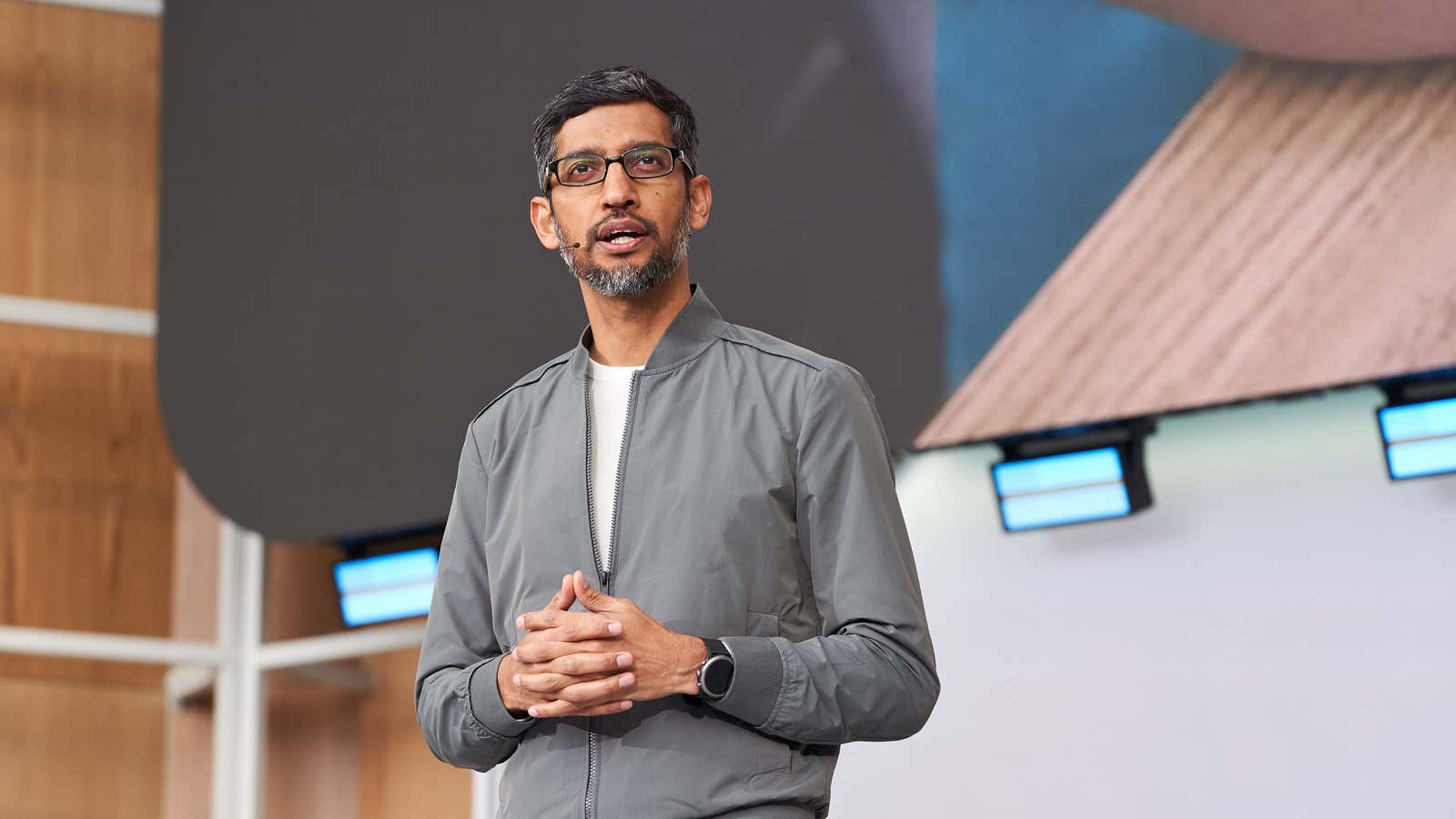The two men who created a search engine in a suburban basement and turned it into one of the world’s largest and most influential companies are handing over the reins.
Google co-founders Larry Page and Sergey Brin announced in a blog post today that they would be relinquishing control of the search engine’s parent company, Alphabet, to Google CEO Sundar Pichai. Brin had served as President and Page as CEO of Alphabet, the behemoth that owns YouTube, Waymo, and Verily, since its creation in 2015. Alphabet is currently the third-most cash-rich company in the world, only topped by Microsoft and Berkshire Hathaway.
“With Alphabet now well-established, and Google and the Other Bets operating effectively as independent companies, it’s the natural time to simplify our management structure. We’ve never been ones to hold on to management roles when we think there’s a better way to run the company. And Alphabet and Google no longer need two CEOs and a President. Going forward, Sundar will be the CEO of both Google and Alphabet,” the co-founders wrote in a joint letter.
The passing of the torch is in many ways symbolic. Both Brin and Page have been keeping a low profile since the creation of Alphabet, letting figures like Pichai and YouTube CEO Susan Wojcicki serve as the faces of the company.
Brin and Page will remain Alphabet employees, continuing to serve as co-founders. They are also, of course, major shareholders and members of Alphabet’s Board of Directors. Alphabet shares rose modestly in after-market trading following the announcement.
Pichai, who became CEO of Google in 2015, took the helm as the search giant embarked on its toughest era yet. The 47-year old Indian American executive has an intellectual, calm demeanor that has served him well with the press and in public appearances. It was Pichai who defended Google against allegations of anti-conservative bias before the House Judiciary Committee.
The world has come a long way since Google’s nascent basement days. Google today faces an unprecedented amount of scrutiny from the world’s regulators over how it handles consumer data and disinformation campaigns. Many Google employees have protested the company’s contracts with the US military, its relationship with authoritarian regimes like China, and its work with the Trump administration. Pichai last month even axed the company’s weekly all-hands meetings amidst growing workplace tensions. As CEO of Alphabet, Pichai’s responsibilities will now encompass everything from content creation at YouTube to smart-city development at Sidewalk Labs to self-driving cars at Waymo. It’s a guarantee he will face even more pushback from lawmakers, activists, and the media as he embarks on his new role.
